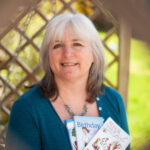This week we are returning to our Defeat Your Writing Enemies theme with LAZINESS.
(If laziness never stops you from writing, read something else from the blog, because this tip isn’t for you!)
But for those of you who suffer from the I‘d rather sit on the sofa than get up and switch on my computer syndrome from time to time, even if you’d really quite like to write, and feel guilty if you don’t… this is for you!

Here’s the crunch – you need to get some momentum going.
So, this is what you need to do when you’re slobbing on the sofa with the remote, feeling lazy and thinking you should be writing…
- You promise yourself you will write for just 20 minutes. After the 20 minutes you can go back to doing whatever.
- You get up, without stopping to argue with yourself, and walk straight over to your computer.
- You switch it on and start work, again without stopping to argue with yourself.
- You start, remembering you promised yourself you can stop after 20 minutes.
- You do as much as you can in those 20 minutes.
- You keep going if you want to, or stop if you don’t.
Then you do the same the next day. Just 20 minutes.
This is what will happen:
- You will start to enjoy your 20 minutes.
- You may go on longer sometimes.
- Your novel will start to take shape.
Then you will look forward to writing… and your laziness will drop away as you begin to see the end in sight.
You can do this! It’s time to defeat that lazy enemy!
Hope that helps – this is something that has worked for me. The big keys are to not give yourself time to argue with your lazy side, and keep the momentum going.
Can you think of someone else who might find it useful? If so, perhaps you would be kind enough to share? 🙂

See you next week,
Janet
P.S. We’re going to squeeze one more Write for a Reason Academy into 2020. It’s been a strange year, and we’re nothing like out of Covid yet. I want to help as many writers as I can, while I can… who knows what next year will bring? I’ll be telling you more about it in due course, but if it’s something you’ve been thinking of doing, pray about it. Maybe now is your time.











